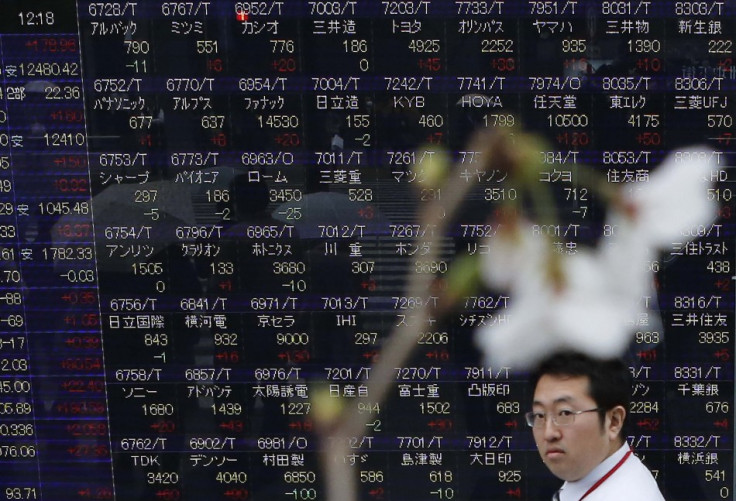Asian Markets Rise on Positive China Data

Most Asian markets rallied taking cues from a solid start to the US earnings season and a positive China inflation data, while the Japanese stocks extended gains on a fifth straight day on yen weakness.
Japan's Nikkei Stock Average rose 2.8 percent or 358.95 points to 13192.6, adding 10 percent to its gain since the close on 2 April, before the Bank of Japan started a two-day meeting that resulted in additional stimulus. Australia's S&P/ASX 200 was up 0.3 percent or 14.10 points to 4905.5.
Shanghai Composite index added 0.4 percent and the benchmark Hang Seng Index rose 0.9 percent. South Korea's KOSPI fell 0.4 percent or 8.54 points to 1918.7.
In Japan, the aggressive monetary policies by the central bank had driven the yen to new lows and the US dollar edged closer to the key 100-yen level, its highest since May 2009. There has been speculation that the BoJ measures to fight deflation will boost corporate profits.
"Markets continue to factor in the extraordinary easing measures adopted by the Bank of Japan (BoJ) under Governor Kuroda. In other words, JPY is likely to remain weak not because of global risk-on flows, but rather due to an increase in Japan's inflation expectations and the likelihood that private investor funds shift into overseas markets as they are squeezed out of the JGB market," said Naka Matsuzawa, analyst at Nomura Research.
In Australia, the key mining sector gained as metal prices rose. Several resource-sector stocks across Asia got a boost from Alcoa, the largest US aluminum producer which reported a nearly 60 percent jump in quarterly profits. The solid start to the US earnings season eased concerns about corporate results in the first three months of 2013.
The stocks in China and Hong Kong except commodities suffered as consumer price index (CPI) inflation in the world's second-largest economy eased less than economists' forecast. China's inflation rate lowered to 2.1 percent on year in March from February's 3.2 percent, but the rate was lower than market expectations of 2.5 percent.
In addition, China continues to battle and contain bird flu infections as death toll climbed to six so far. Chinese and Hong Kong stocks, particularly in the airline sector, have been affected since the outbreak of the infection.
Meanwhile, the South Korean market continued to suffer from the tensions in the peninsula and the weakness of the yen. Amid rising military tensions, North Korea suspended its sole remaining major project with the South on Monday, the Kaesong industrial park. There was speculation that North Korea will take some sort of provocative action, including another nuclear test or missile launch.
Major Movers
In Japan, export-oriented companies continued to gain on the weakness of the yen. Heavy machinery company Okuma gained 7.9 percent, mining major Mitsubishi materials rose 3 percent and Sumitomo Heavy Industries rallied 6.7 percent.
Among Alcoa's peers, Alumina gained 6.2 percent in Sydney, while Aluminum Corp. of China gained 1.4 percent in Hong Kong and 1 percent in Shanghai.
Airline stocks gained as fears related to the spread of a new strain of bird flu in China started subsiding. Air China and China Southern Airlines rose 1.2 percent each in Shanghai, while Cathay Pacific Airways advanced 2 percent in Hong Kong and Qantas Airways climbed 1.3 percent in Sydney.
In Korea, Korea Pacific No 05 Ship Investment tumbled 61.8 percent, Hanil Engineering & Construction declined 28.4 percent and auto parts and equipment supplier Dahaam E-Tec lost 10.8 percent.
© Copyright IBTimes 2024. All rights reserved.






